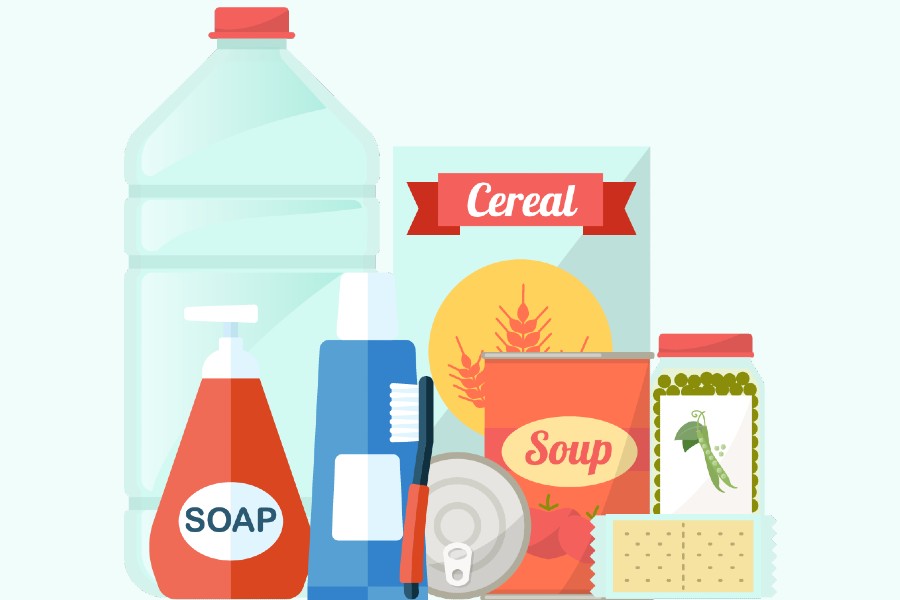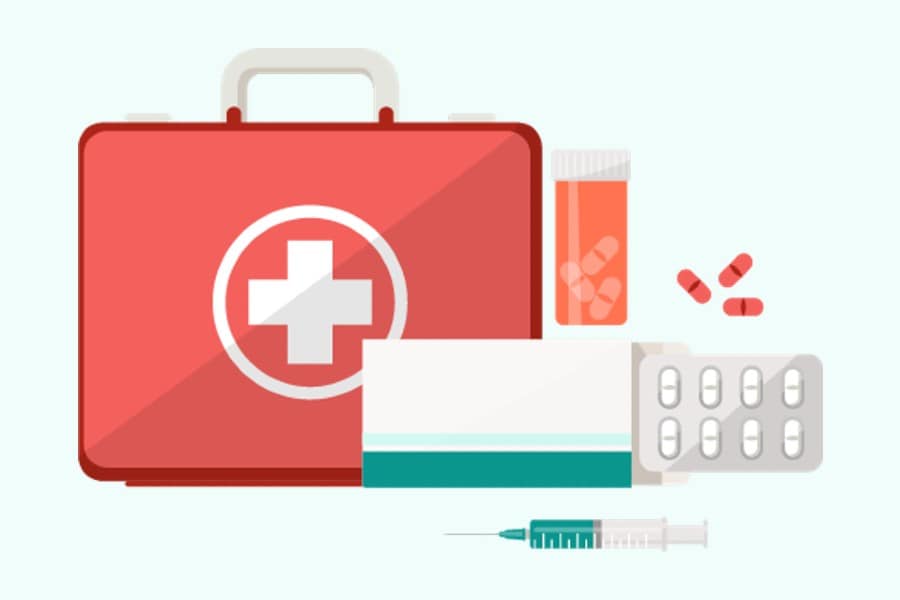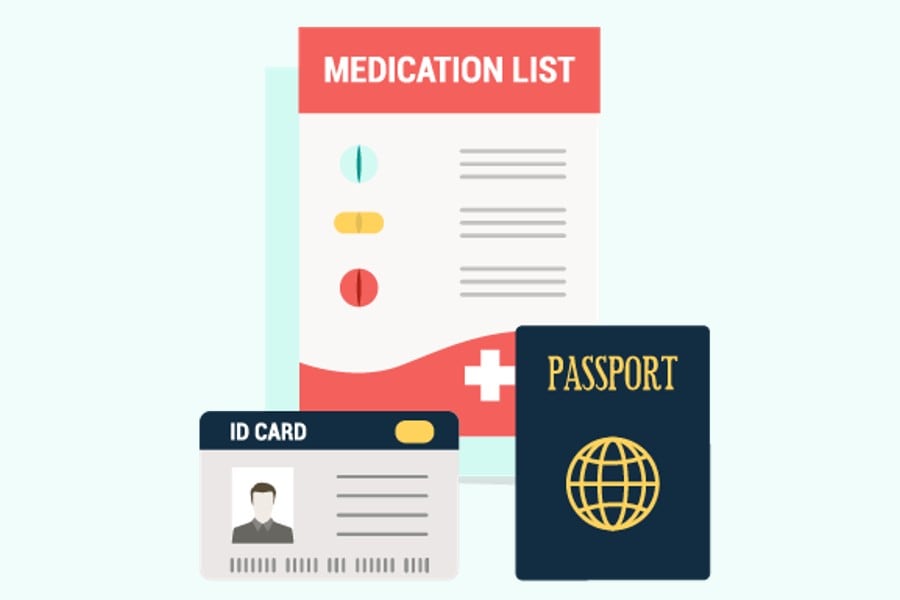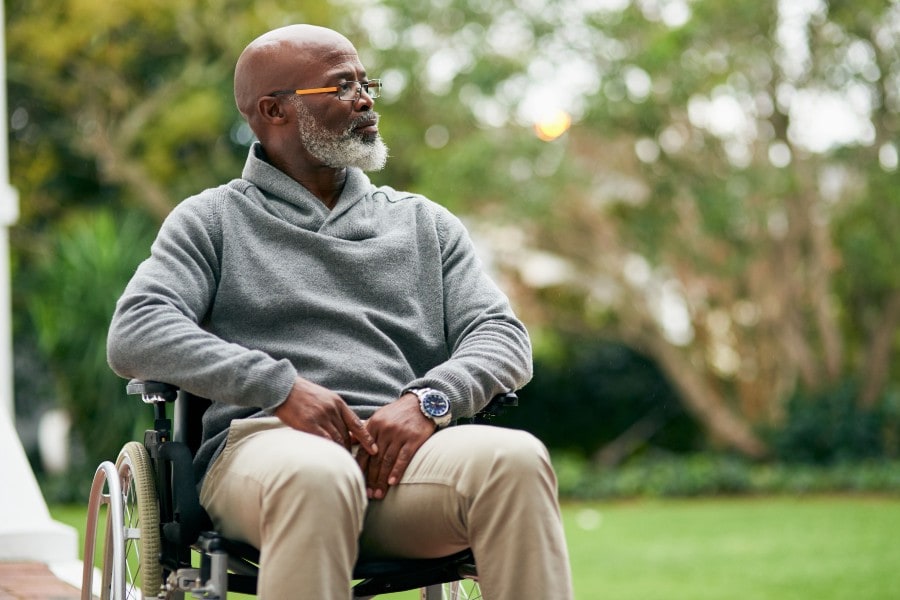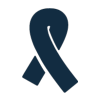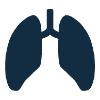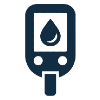How to Manage Your Chronic Disease During a Disaster
Natural disasters, such as hurricanes, floods, tornados, and wildfires, can be stressful if you are managing a chronic disease. Learn how to prepare and reduce your risk of serious illness during a disaster.
Build a Disaster Supply Kit to Stay Prepared
Be prepared for an emergency by packing the following items in your disaster supply kit.
Alzheimer’s Disease or Other Dementias
- Disasters, or any change in routine, can be especially upsetting and confusing for people with Alzheimer’s or related dementia. Be aware of signs of anxiety or agitation in people with dementia and be prepared with strategies to calm them during times of stress.
- People with dementia sometimes wander and can become easily lost. Don’t leave the person with dementia alone when their routine or environment is disrupted.
- If you have a family member in a long-term care facility, find out about its disaster plans and rules for visitors during those times.
Arthritis
- If you have trouble moving or getting around, make a note of that in your emergency plan. Think about how you will stay mobile during an emergency.
- Keep medicines for pain and other arthritis symptoms handy, and plan for special medicine needs, such as scheduled infusions or refrigeration of medicines like biologicals.
- Keep any assistive devices you use to get around where you can find them quickly.
- Avoid hard physical work like disaster cleanup to prevent joint injuries that can worsen your arthritis symptoms. Learn more about things you can do to manage arthritis.
Cancer
- Be prepared for an emergency by building a disaster supply kit, making a plan, staying informed, and avoiding infections. If you have a cancer survivorship care plan, keep it in your disaster supply kit. Bring it with you if you need to leave your home.
- If you are being treated with chemotherapy, watch for signs of an infection, such as chills and sweats, a sore throat or new mouth sore, nasal congestion, or vomiting. Call a doctor right away if you notice any signs or symptoms of infection.
- Get more emergency tips for patients with cancer from the National Cancer Institute.
Chronic Obstructive Pulmonary Disease (COPD)
- Talk to your doctor about preparing a COPD Action Plan [PDF – 48 KB] and a COPD Travel Pack. If you have these already, keep them in your disaster supply kit and bring them with you when leaving home.
- If you receive oxygen therapy, ask your doctor how to find emergency shelters that provide this service. Also ask how to make sure you have enough equipment and supplies during and after a disaster.
- If you have to leave your home to go to a shelter, make sure the shelter staff know you have COPD.
- Learn more about how to protect your lungs during a disaster and tips for returning home after a disaster.
Diabetes
- Follow the Diabetes Preparedness Plan [PDF – 871 KB]. Store at least 1 to 2 weeks of diabetes supplies in your disaster supply kit and consider having an extra glucagon emergency kit.
- Keep your insulin, supplies, and equipment in your disaster supply kit. Insulin loses some effectiveness at extreme temperatures, but it can still be used for 28 days at room temperature up to 86°F. Learn how to store insulin.
- Check your feet every day for cuts, redness, swelling, sores, blisters, corns, calluses, or any other change to the skin or nails. Call a doctor as soon as possible if you see an injury or wound.
- For more information, visit the Diabetes Disaster Response website or call 1-800-342-2383.
Epilepsy
- Prepare a disaster supply kit with a 3-day supply of your medicines. When you leave your house, carry the supply with you in a safe and waterproof location.
- For some people with epilepsy, seizures can be triggered by flashing lights, sounds, lack of sleep, stress, or other triggers. If possible, know what triggers your seizures.
- If you are staying at a shelter, make sure the shelter staff know you have epilepsy.
- Talk with people surrounding you such as family, neighbors, co-workers, and friends about what to do if you have a seizure. Teach them how to help you and things to do in case you have a seizure.
- Learn more about Epilepsy and Disaster Preparedness.
Heart Disease
- Make an emergency plan and disaster supply kit with your prescribed medicines.
- Stress from a disaster may increase blood pressure. Monitor your blood pressure regularly, especially if you have high blood pressure. Learn more about measuring and controlling blood pressure.
- Stress from a disaster can lead to heart disease symptoms. Know the signs and symptoms of heart attacks and stroke, and call 9-1-1 immediately if you have any of the symptoms. Getting treated quickly is critical, and an ambulance can get you to the hospital faster.
- For heart attack patients, the sooner you get to an emergency room, the sooner you can get treatment to reduce damage to the heart muscle.
- When it comes to stroke, every minute counts. If you act F.A.S.T. and call 9-1-1, you can get important medicines to treat stroke. Some clot-busting medicines can only be given within 3 hours after having a stroke.
- Wildfire smoke and disaster-related air pollution can increase heart disease symptoms such as chest pain, heart attacks, trouble breathing, stroke, or an abnormal heartbeat. It can also make symptoms of heart failure worse. Get medical help if you or someone you know is having these symptoms.
- Get enough sleep to protect your heart health.
Kidney Disease
- Create an emergency plan and disaster supply kit that include your local dialysis center’s address and phone number.
- Ask your dialysis center for their disaster plans and where you will get treatments if the center is closed during a disaster. Your local health department may be able to help with transportation to the dialysis center or recommend another place if yours is closed. If you need more help, call the Kidney Community Emergency Response (KCER) Hotline at 1-866-901-3773.
- If you cannot get your treatments, follow the 3-Day Emergency Diet [188 KB] and keep the foods on this diet in your disaster supply kit. If you are pregnant or have an infant or child who is on dialysis, talk to your doctor or dietitian about changes to this diet.
- In case of a power failure, if you have a home dialysis machine, you may be able to do manual exchanges until the power comes back on.
- Learn what to do in an emergency if you need dialysis.
General Resources
These general resources can help you prepare or recover in the event of a natural disaster or other emergency:
